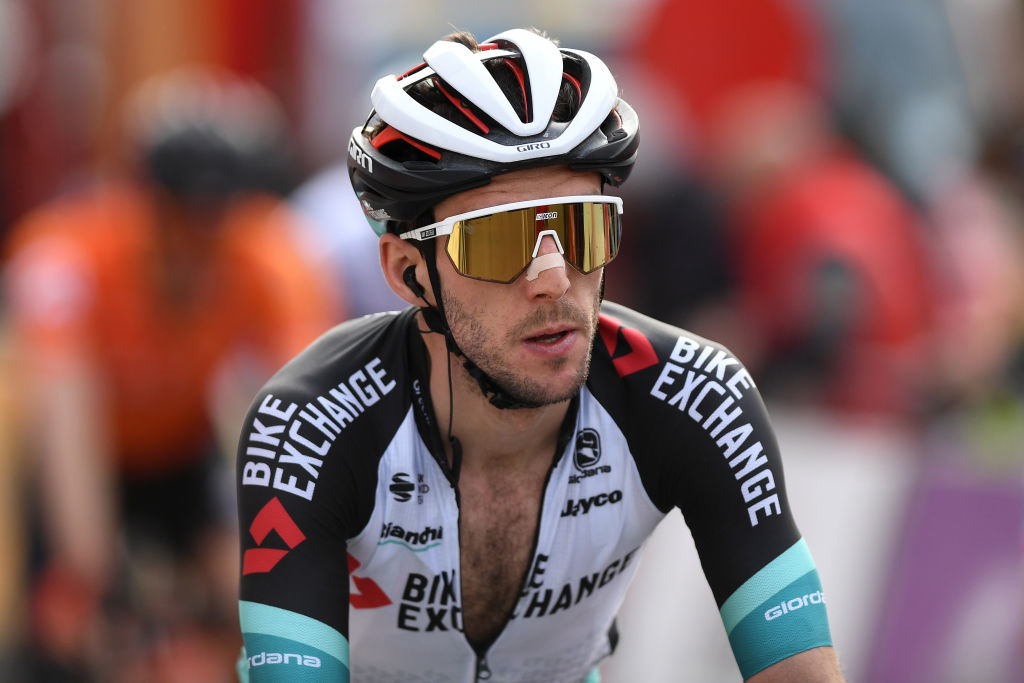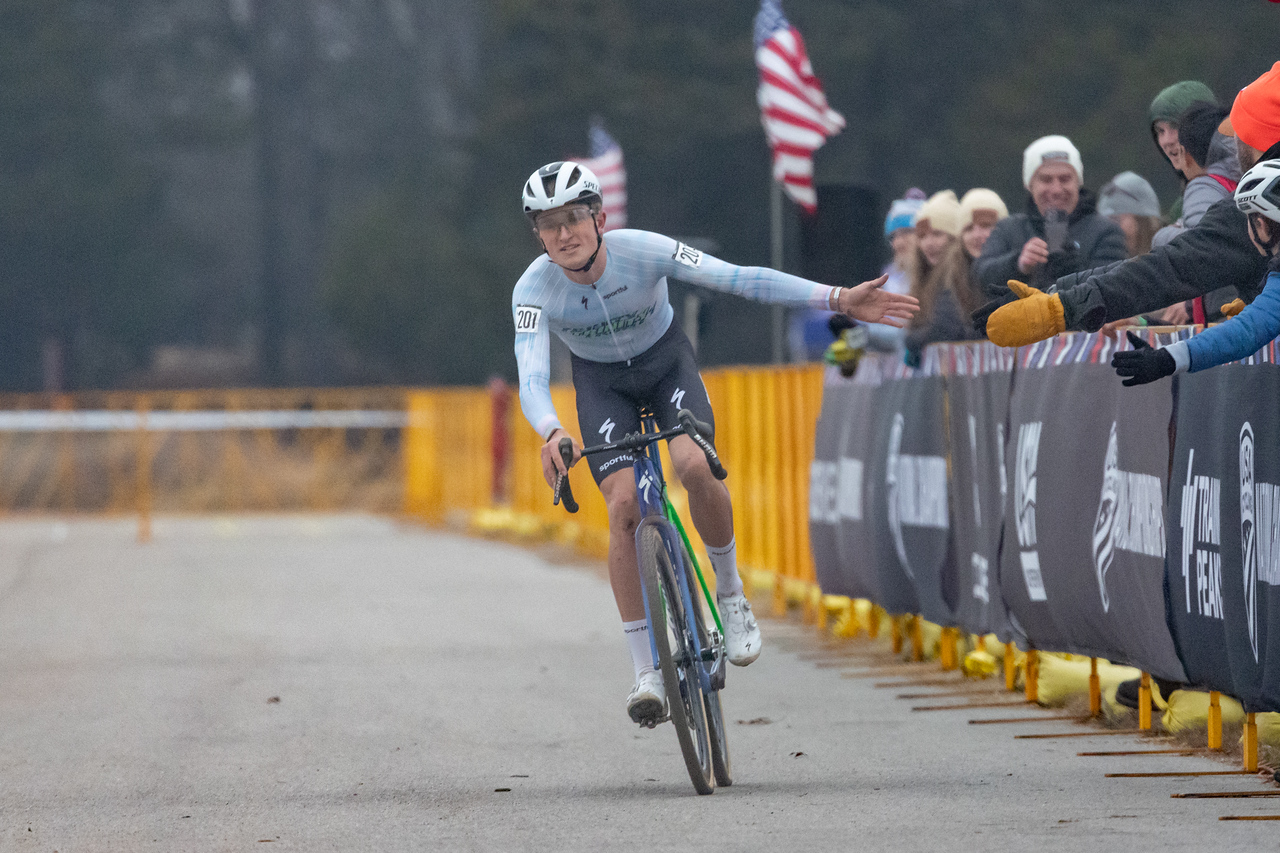Matt White: I'm not concerned about Simon Yates peaking too early at Giro d'Italia
2018 Giro lessons already corrected at that year's Vuelta, says BikeExchange director

Most of the favourites for this Giro d’Italia come with some manner of caveat, be it related to age, experience or recent injury. Simon Yates, on the other hand, arrived in Turin with observers wondering if he had simply been too good too soon in claiming an empathic win in last month’s Tour of the Alps.
The questions regarding Yates’ build-up are a residue of the 2018 Giro, where he stitched together three stage wins of sparkling quality at Gran Sasso d’Italia, Osimo and Sappada, only for his challenge to unravel dramatically on the Finestre, just two days from the finish.
It’s too easily overlooked, however, that Yates and his team quickly applied the harsh lessons of that defeat to the following Vuelta a España. On that occasion, the Bury native meted out his effort more sparingly in the opening half of the race before striding steadily clear of his rivals in the third week.
Team BikeExchange directeur sportif Matt White has guided Yates in his Grand Tour endeavours over the years, and he had no qualms about his rider’s show of force at the Tour of the Alps, particularly given his limited diet of racing beforehand.
"Simon has had a big long build-up and the preparation phases have gone well, so I’m not concerned about him peaking too early," White told Cyclingnews.
"We have learned lessons and I think people do forget – we learned from the 2018 Giro very quickly in the Vuelta three months later.
"I think if you look at how many people have won the Dauphiné before the Tour de France, it’s exactly the same window as there is between the Tour of the Alps and the Giro. Nibali won the Tour of the Alps [then the Giro del Trentino] before winning the Giro, so it wouldn’t be the first time.
The latest race content, interviews, features, reviews and expert buying guides, direct to your inbox!
"It’s a template that’s been used in the past, and if you look at Simon’s race programme, he didn’t start racing until Tirreno. He had a late start, partly because of COVID, which he caught at the end of last year, and also because we had all our February races postponed."
Yates lies 27th overall after three stages, 41 seconds down on maglia rosa Filippo Ganna (Ineos Grenadiers), but in close proximity to the bulk of the GC contenders. While men like Yates, Alexander Vlasov (Astana-Premier Tech) and Hugh Carthy (EF Education-Nippo) already caught the eye at the Tour of the Alps, other contenders have suggested they had taken a steadier approach to April racing with the demanding final week of the Giro in mind.
In 2021, as in so many modern editions of the Giro, the key difficulties of the race are condensed into the final third, but it would be mistaken to couch the first two weeks of the race as a long preamble to that denouement. The summit finish at Monte Zoncolan on stage 14 may mark the beginning of the Giro’s endgame, but there are plenty of pitfalls for GC contenders along the way, beginning with Tuesday’s stiff climb of the Colle Passerino en route to the finish in Sestola.
The 4.2km climb has an average gradient of 9.9 per cent with ramps at 16 per cent. It’s the kind of finale that might lend itself to the extravagant gifts of Yates, and it could certainly catch out riders who arrived in Italy still shy of their best. White doesn’t anticipate large time gaps, but the ascent might provide some early indications of form.
"I think we’re going to find out who’s come into the race in good shape. Some guys like to build a little bit through the Giro and I think tomorrow there’s going to be nowhere to hide," he said.
"It’s a tough final, as is stage 6 [to San Giacomo above Ascoli.] The second week doesn’t have key stages until the Zoncolan, but there are still a lot of days, with 3,000 or 3,500 metres of climbing that just wear a team down.
"You can choose to ride smarter or to expend more energy in that second week of the race. All those things add up to how your team and your leader arrive in the last week, which we always know is where the Giro is won and lost."
Yates knows that better than most, and one senses he has an account to settle with the Giro after the unfinished symphony of 2018. He has returned every year since, labouring to 8th place in 2019 and then being forced out after a positive test for coronavirus last October, when he looked an obvious favourite in the wake of his Tirreno-Adriatico victory.
"In the planning process for this year’s Giro, there are a few things involved, including the Olympic Games, and what the Tour de France course was like," White said. "But at the end of the day, Simon has a big passion for trying to win this bike race."

Barry Ryan was Head of Features at Cyclingnews. He has covered professional cycling since 2010, reporting from the Tour de France, Giro d’Italia and events from Argentina to Japan. His writing has appeared in The Independent, Procycling and Cycling Plus. He is the author of The Ascent: Sean Kelly, Stephen Roche and the Rise of Irish Cycling’s Golden Generation, published by Gill Books.
